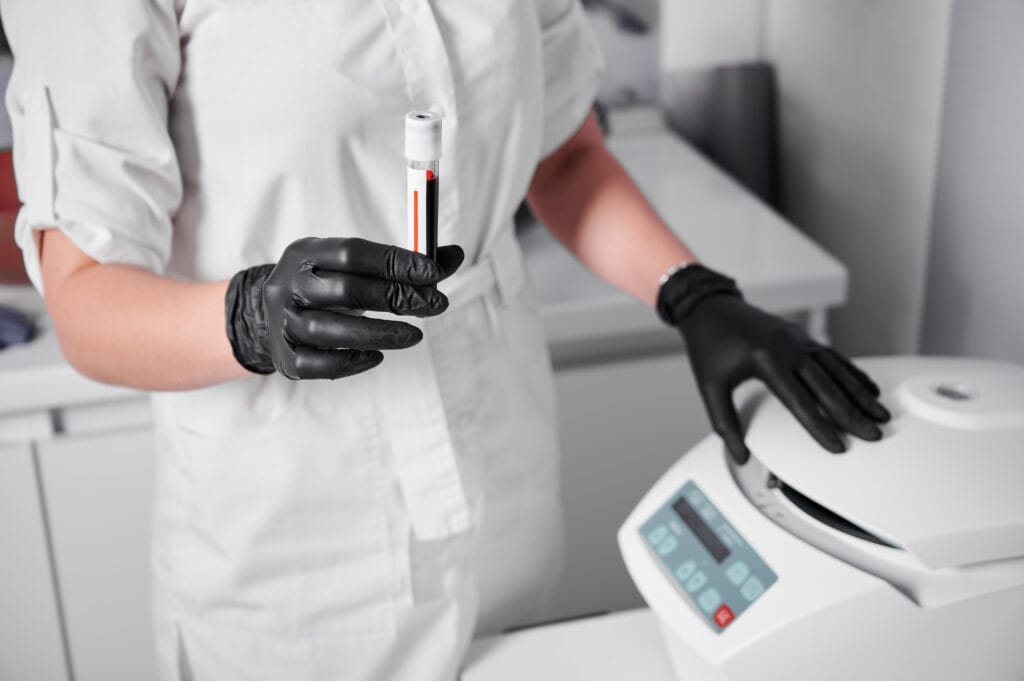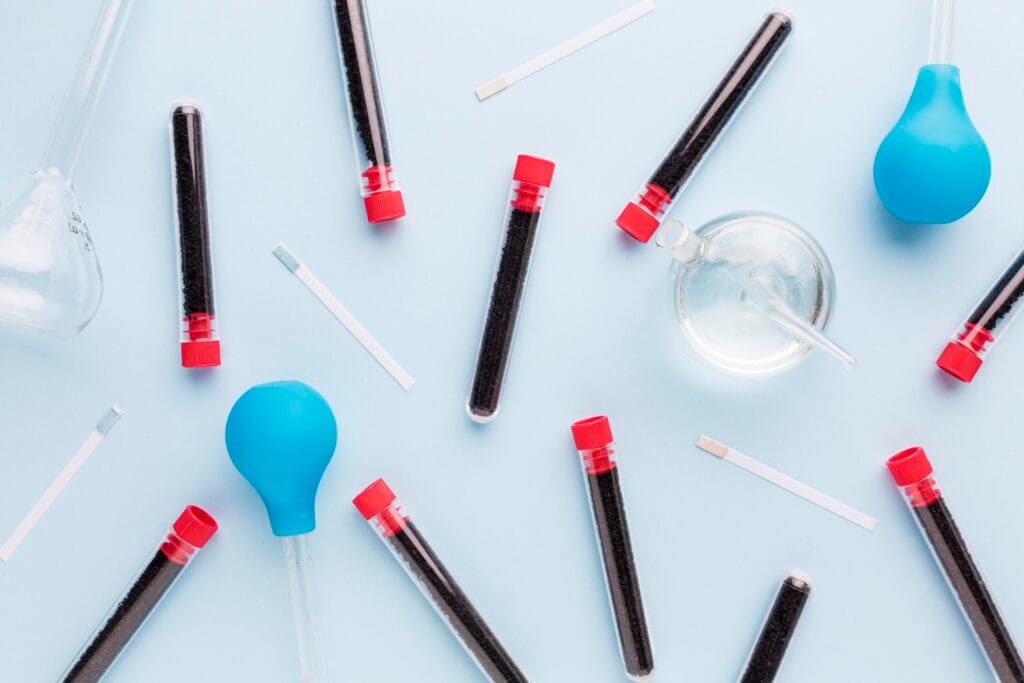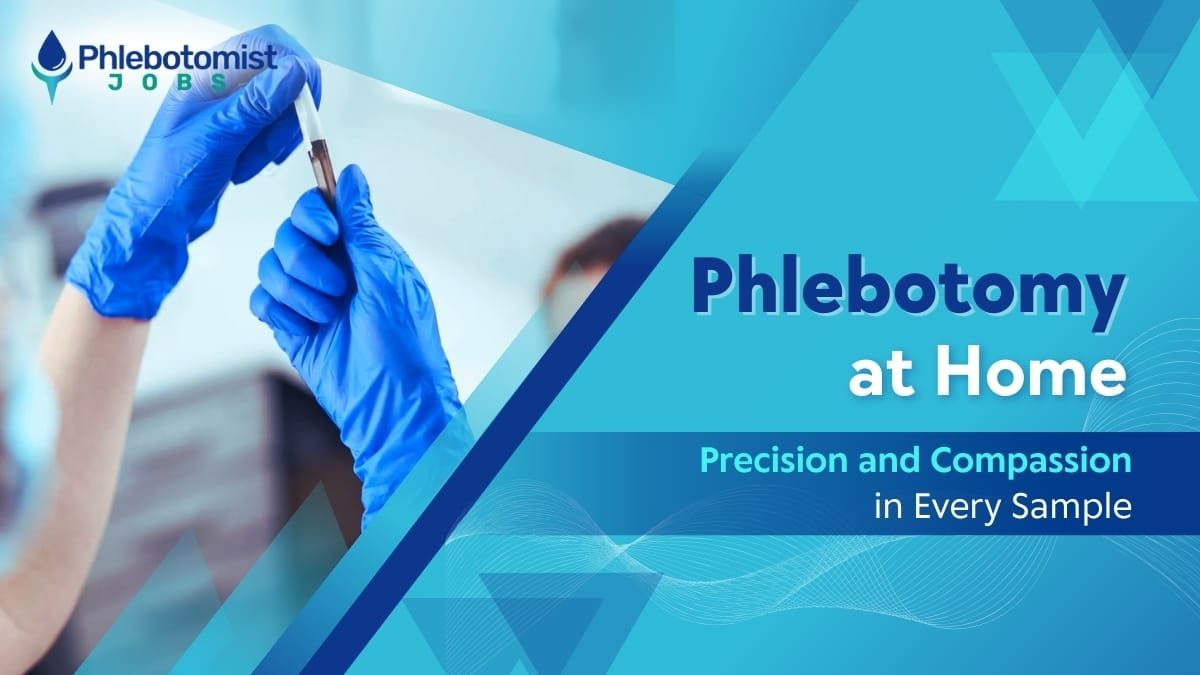Table of contents ▸
Phlebotomy and home healthcare are rapidly growing areas in the medical field. The increasing demand for personalized medical attention has paved the way for the development of the phlebotomy home healthcare segment, where diagnostic testing can be done at home. This article will examine the emergence of phlebotomy home healthcare among the growing careers in health and how this aligns with the overall trends in developing in-home healthcare.
The Rise of In-home Healthcare
Indeed, in-home healthcare is becoming a much broader trend in practice. There is a growing realization that the combination of increasing life expectancy and innovations in medical technology is driving the need for accessible healthcare solutions. Since older patients usually require frequent blood tests to look after their chronic conditions, they tend to prefer home-care services for drawing blood rather than going to a clinic. That projection coincides with what the U.S. Bureau of Labour Statistics has forecast for an 8% increase in the employment of phlebotomists from 2023 to 2033, which is much faster than average for all occupations.
In addition to saving on costs, in-home healthcare reduces readmissions to hospitals. Phlebotomists are important for this process as they obtain blood samples to be used in diagnostics and enable timely intervention. In fact, with the advent of prevention-oriented healthcare systems, individuals specializing in phlebotomy home healthcare have become critical players, making it one of the emerging healthcare professions in 2025.
Emerging Technologies Supporting Phlebotomy

Advancements in medical technology have made it much easier to provide phlebotomy home healthcare. Portable diagnostic devices, such as the new electronic health record (EHR) systems, allow the phlebotomist to perform and document procedures efficiently since they can perform the procedures right in the patients’ homes. This is an important 2025 trend that ensures the accuracy of information and smooth communications with laboratories, which further affirms home health.
It will also allow integration with telehealth to coordinate phlebotomy care delivered by a physician by virtual means. The use of scheduling apps and real-time data exchange further refines the procedure, ensuring nothing interferes with the phlebotomist’s attention to patient care. Innovations such as point-of-care testing devices yield results immediately, improving the efficiency of home-based diagnostics. This further solidifies the role of phlebotomy home healthcare in delivering quality and accessible medical services. This is strengthening the present status of phlebotomy home healthcare as one of the other big and emerging healthcare careers for the future, as it promises to improve patient outcomes.
Why Phlebotomy Thrives in Home Healthcare
Numerous factors keep phlebotomy home healthcare at the forefront in 2025. First and foremost is patient choice for in-home healthcare. Many individuals, more so the elderly or those with mobility problems, find it quite difficult to present themselves in medical facilities. Therefore, phlebotomy home healthcare seeks to level this imbalance by bringing the services of caring for patients to their homes, thus enhancing the comfort of the patients and raising compliance.
The second driving force behind phlebotomy home healthcare is paramedical professionals’ flexibility in working within home healthcare. These phlebotomists usually enjoy irregular working schedules, thus keeping their work interesting, and develop a rapport with patients. Competitive remuneration is also another attraction, with the median annual wage for phlebotomy reported at $43,660 in 2024, according to the Bureau of Labour Statistics.
Training and Certification for Success

Phlebotomy home healthcare is another veritable career opportunity due to its easy entry into the profession. Most phlebotomists go on to complete a postsecondary certificate program that generally lasts for a little less than a year. The program tends to include anatomy, medical terminology, and blood collection techniques. A certification offered by one of the various agencies (e.g., National Phlebotomy Association or American Society for Clinical Pathology) optimizes job possibilities, especially for in-home healthcare settings, where employers cherish verified skills. Indeed, certified phlebotomist validate expertise and, eventually, instill confidence within the patients receiving care at home. Continuous professional development programs, workshops on advanced techniques such as venipuncture, help build competitiveness among phlebotomists with changes in this dynamic field. This health-oriented professional development of skill keeps phlebotomists specially trained to fulfill the diverse needs of home healthcare patients.
The specialized training in geriatric and pediatric phlebotomy mentioned as trends in 2025 serves to set other professionals further apart in phlebotomy home healthcare. Such skills become very relevant in in-home healthcare, where the elder population or children with special needs would be the respective targeted audiences.
Opportunities for Career Advancement
Opportunities for career advancement are opened by the versatility offered in phlebotomy home healthcare. The experienced phlebotomist may take up supervisory positions, thus supervising teams within in-home healthcare agencies; otherwise, others continue in further education to become medical assistants or laboratory technicians, using experience from phlebotomy and in-home health care. Besides, exposure to a rich variety of cases in home settings also hones one’s clinical acumen, allowing phlebotomists to better prepare for specialized work. Building networks with by other healthcare professionals at home care agencies can also be avenues toward leadership opportunities. Not to forget-the highly rewarding career provides both security and further advancement in the ever-growing healthcare arena.
Conclusion
Given the aging of the population, advancing technology, and a thrust toward patient-centred in-home healthcare, phlebotomy home healthcare is thriving. This segment of growing healthcare careers is a rewarding opportunity for professionals who want to make a difference while working in a stable job with healthy salary benefits. With credit given to the changes taking place within in-home healthcare, Phlebotomy home care is on course for further growth, thus keeping its relevance in the rapidly changing healthcare economy. Visit our website, Phlebotomist Jobs, for the latest job updates and listings of growing healthcare careers.
Follow us on Social Media: LinkedIn | Facebook | Twitter | Instagram












